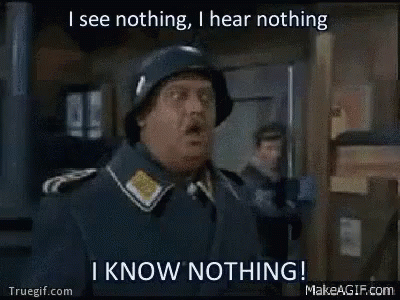As evidence of Jordan's knowledge at the time, statements by wrestlers who claim to not have seen what other wrestlers claim to have seen doesn't move Jordan's defense along very far because it's not reasonable to think that everyone was always in the same room. And a number of wrestlers now put Jordan in the same room while Strauss's misconduct was being discussed.
Hellickson's statement in support of Jordan doesn't move the needle for me at all since Hellickson is situated identically to Jordan in terms of potential personal liability. If he claimed otherwise, he'd be conceding his own potential liability. That doesn't at all mean Hellickson is lying, just that his motivation to deny is the same as Jordan's and thus there are limits to how persuasive such a statement in support can be. Everything to do with how evidence is considered and not anything personal about Hellickson.
I think something that's being lost in this discussion is the context by which we're learning all this. Despite that the headlines focus on Jordan (and they would for any high-profile politician), Jordan is on the far periphery of the investigation itself. Ohio State undertook an investigation to determine its own liability with respect to Strauss's misconduct, which appears to acknowledged by everyone, rather than wait around for the inevitable class-action lawsuit.
And Good on Ohio State for that. But the decision to conduct the investigation has nothing to do with Jordan. He's not being targeted by Ohio State even if the headlines are focusing on him. In the context of that investigation, the Ohio State coaches' decision-making is rightly open to second-guessing being that Strauss's misconduct, by many accounts, was widely-known. People are naturally being interviewed about it and accordingly the question about what Jordan knew and when was due to arise.
And in that context, it's extremely difficult to plausibly suggest, as Jordan and his defenders repeatedly have (“Look, the timing makes you wonder,” Jordan said), that this is all a politically motivated hit job on Jordan. Further undermining that notion, some of the wrestlers who put Jordan in the room while Strauss was being discussed share Jordan's politics can consider him a friend. Jordan's blanket denial and insinuation that it's politically motivated just doesn't jibe.
So based on those statements and their presumed credibility (I'm putting DiSabato's statements on the back burner for the sake of argument, given that if you buy DiSabato's claim, Jordan was told at the time) I'm inclined to believe that Jordan knew that Strauss was a problem, though it's difficult to say precisely how, and I think that ambiguity is probably adequate to serve as legal defense should one be needed (and presuming no further corroboration). I think given the era this occurred there wasn't the same inclination to report misconduct, a greater willingness to defer to medical authority (see MSU and Larry Nassar), and a greater willingness to imagine that your co-workers were only ever acting in good faith.
I've worked on child molestation cases involving the Catholic church and have seen plenty of good people look the other way and I'm even sympathetic to why that happens. I don't see it in black and white, I see a grey morass of institutional pressures, exploited loopholes, human nature, and human weakness. What I see here is a strong likelihood that Jordan isn't coming clean, which I'm more inclined to believe due to his taking the position that this is all about him and politically motivated despite the absence of such evidence.
Even assuming Jordan didn't know anything, if you credit the various wrestlers' accounts of Strauss's behavior, there's a pretty good argument that Jordan
should have known, given his proximity to the situation, Strauss's position, and Strauss's frequent and overlong showering with the athletes.
There are financial incentives to claim victimhood given that the likely end to this is a settlement offer from Ohio State. But I think that's outweighed by the known disincentives to challenging power and admitting to being sexually abused, though that stigma is ebbing somewhat.

